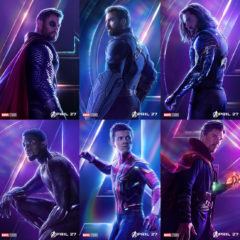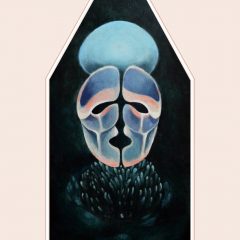The Perverse Universals of the Microeconomic Mode
Thursday 20th June 2019 Room B03, 43 Gordon Square The Centre for Contemporary Literature at Birkbeck is delighted to host Dr Jane Elliott (KCL), who will be delivering a guest lecture based on research developed in her recent monograph, The Microeconomic Mode: Political Subjectivity in Contemporary Popular Aesthetics (Columbia University Press, 2018). The Perverse Universals of the Microeconomic Mode From pop phenomena such as Game of Thrones and The Hunger Games to the literary triumph of Jesmyn Ward’s Salvage the Bones, the microeconomic mode redefines human being as the intersection of inescapable embodiment, threats to survival, and what Elliott has called binary life, or the conviction that humans always choose to exist at the expense of other life. In this talk Elliott will consider the consequences of binary life for longstanding debates regarding the role of suffering, spectatorship and compassion in the recognition of universal personhood, via readings of recent films such as Wind River (2017), and Avengers: Infinity War (2018). In contrast to the dramas of inclusion and exclusion that structure narratives regarding the extension of personhood to formerly excluded forms of life, binary life produces a perversely universal version of humanity equality, in which every single conscious human being must choose whether to stay alive at someone else’s expense. Elliott argues that this radically absolute definition of human equality interrupts the hierarchical transactions of the sentimental imagination in ways that are restructuring the imagination of material injustice in the present. Jane Elliott is Reader in Contemporary Literature, Culture and Theory at King's College London. She is author of Popular Feminist Fiction as American Allegory: Representing National Time (2008) and coeditor of Theory After "Theory" (2011). This event is held in conjunction with the MA Summer Programme at Birkbeck, and with the MA Contemporary Literature & Culture. For more details contact organizer Dr Sean O'Brien, Director of the MA Contemporary Literature & Culture. Avengers image from AntMan3001, used under a CC BY-SA 2.0...
Organic Systems: Session 1 – report
Organic Systems: Science Fiction & Ecology Today Session 1: SF & Critical Ecologies (Goldsmiths): 2nd May 2019 Organic Systems is a series of four workshops on Science Fiction and Ecology, aimed primarily at postgraduate research students and supported by CHASE, the Consortium for the Humanities and the Arts in South-East England. The series is a collaboration between Birkbeck and Goldsmiths, two colleges of the University of London, and specifically between the Centre for Contemporary Literature (Birkbeck) and the Critical Ecologies research strand (Goldsmiths). Each workshop has the following aims: To provide beneficial research expertise from guest speakers in designated training sessions. To hold round-table sessions in which guest speakers with strong research interests and expertise will present and discuss ideas – with contributions also welcome from the registered participants. To encourage meeting and networking among scholars in related areas, leading to the development of this research area. The first of the four workshops was held at Goldsmiths on Thursday 2nd May 2019. We began by reflecting in general terms on the rationale of the series and the connections between SF and ecology. We noted the still emerging interest in SF as critical field – in literary studies, film, media, culture, visual art, and so on. Locally, an important agent in this has been the London Science Fiction Research Community (LSFRC), a group primarily based at Birkbeck but involving members from elsewhere. It was LSFRC that first used the title Organic Systems, applied to a series of reading groups that culminated in a symposium in 2017. We thus borrow our title with due respect to them. We can also note an increasing role for SF as a way of thinking about other fields – such as economics, sociology, media, urbanism, or – as we want to explore – ecology. A good example of this crossover is Economic Science Fictions (2018), edited by William Davies and published by the Goldsmiths Press in 2018. Such work suggests that SF may currently be an interdisciplinary space where different social concerns can meet in fantastical and speculative form. Meanwhile, ecology is more insistent in the media and public consciousness than it has been some time. Indeed the last month or so before our first session featured the dramatic protests staged by the group Extinction Rebellion, and the intervention of Swedish school striker Greta Thunberg into UK politics, among other ongoing events. It is sometimes said that among all cultural and artistic forms, science fiction is unusually well placed to address such concerns: because of its ability to extrapolate and estrange, and because it might be better able than other narrative forms to match the...
Organic Systems: CHASE workshops
CHASE – the Consortium for the Humanities and the Arts in South-East England – is an AHRC funding body which provides funding for events hosted at its member institutions, directed at the enhancement of skills and scholarship of postgraduate research students. Birkbeck and Goldsmiths, both colleges of the University of London and members of CHASE, have collaborated to put together a series of workshops for PGR students, around the theme: Organic Systems: Science Fiction & Ecology Today. The title draws on the work already done by the London Science Fiction Research Community, a PGR-led group based primarily at Birkbeck who have also played an important role in advising on this new series of CHASE workshops. The four workshops are scheduled as follows (all dates are 2019): Thursday 2 May: SF and Critical Ecologies (Goldsmiths) Thursday 23 May: SF and Ecology on Screen (Birkbeck) Thursday 4 July: Ecologies of Gender (Birkbeck) Thursday 12 September: Science Fiction/Fiction Science (Science Museum) The programme is intended for doctoral students, and priority will be given to those studying at institutions that are members of the CHASE consortium. If space allows, then other scholars and members of the public will also be welcome. Please register here on the CHASE website. Blog reports on each event will be posted here on the Centre for Contemporary Literature website. There follows a more detailed description of the series, including the current list of speakers and timings. * This series of four CHASE training events will explore the relation between science fiction (SF) and ecology as the nexus of an emergent set of interdisciplinary research interests. Much recent research and theory has pointed to the complementary nature of these two prominent areas of contemporary thought, often highlighting the creative and critical power of the science-fictional imagination for addressing ecological questions and concerns that are necessarily difficult to think within established epistemological frameworks – by virtue of their novelty, futurity and scales. These same factors mean that, despite a growing body of relevant work emerging in particular in critical science fiction studies and what have been called environmental humanities and posthumanities, there remains a shortage of obvious methodological resources and training for research students working at or wanting to engage in this area of crossover. Each event will comprise (1) a dedicated training session for PGR students, which will include practical components (e.g. on accessing archives, applying for fellowships, or discussion of the experience of research and issues arising from it), (2) a roundtable event with expert speakers on a particular theme, and (3) a semi-formal reception to promote the formation of collaborations and networks. Dates (all 2019), themes and venues for the four...
Nocturnes
The Centre for Contemporary Literature is glad to announce that a new MA student-led reading group called Nocturnes is to start this January. It will be held on four dates (listed below) during Spring term 2019. Nocturnes will be hosted by Orla Cubitt, a second-year, part-time student on the MA Contemporary Literature and Culture, and Azad Ashim who is a first year, part-time student on the MA Creative and Critical Writing. The theme broadly connecting the selected texts is Contemporary Traumas, and covers issues including isolation, war, race and loss. This group is open to MA students across the Arts and Humanities programmes so will benefit from a broad range of student voices beyond our individual seminar groups. We think this will be a really good opportunity to meet students from other courses and to share ideas and learning. Please find the dates and texts listed below. All are to be held on Mondays at 7pm-8pm and with only two meetings either side of reading week, has been mindful of existing course loads. Mon 21st Jan: Bluets by Maggie Nelson Mon 4th Feb: The Corpse Exhibition by Hassan Blassim Mon 25th Feb: Exit West by Moshin Hamid Mon 11th March: A Little Dust on the Eyes by Minoli Salgado Week One on Monday 21st Jan will be held in Room 218, 43 Gordon Square. Locations for the following dates are TBC. For a PDF of Week Two's short story 'The Corpse Exhibition', please contact the organizers at: orla.cubitt@yahoo.co.uk. We hope to see you there! Best wishes, Orla and Azad. Image by Rory MacLeod, used under a CC BY 2.0...
Transitions 8
Saturday 10th November 2018 Main Building, Malet Street Birkbeck, University of London The Centre for Contemporary Literature is delighted to announce the programme for Transitions 8: our eighth symposium dedicated to comics and graphic narrative. Details follow. They can all be viewed as a PDF here. * Transitions was originally conceived and launched by Tony Venezia in 2010, while writing his PhD at Birkbeck. The symposium is organised with support from the Centre for Contemporary Literature and the Department of English and Humanities. Since 2010, Transitions has become an important fixture in the landscape of UK comics studies, and increasingly also attracts participants from further afield. Our aim has been to maintain the spirit of inclusivity and support for emerging research that informed the original ethos of this event. After a brief absence in 2017, the current team: Hallvard Haug (Birkbeck), Nina Mickwitz (University of the Arts London) and John Miers (Kingston) are pleased to welcome you to Transitions 8. We are also delighted to welcome Dr. Maggie Gray (Kingston), author of Alan Moore, Out from the Underground: Cartooning, Performance and Dissent (Palgrave Macmillan 2017) as this year’s keynote speaker. You will need to make your own arrangements for refreshments and food during the day, but beyond the coffee shop just inside the Torrington Square entrance to the building, there are also various shops and cafes in the close vicinity of Birkbeck. Thanks to the generosity of the Centre for Contemporary Literature there will be a small wine reception at the end of the day, as per tradition. This event is free of charge and open to all, but in order to gauge numbers we ask that you register your attendance in advance, using this link at EventBrite: https://www.eventbrite.com/e/transitions-8-new-directions-in-comics-studiestickets-50783275143 TRANSITIONS 8 PROGRAMME 9.30 – 10.00 Registration 10.00 – 10.20 (B20) Brief Welcomes Joe Brooker and Hallvard Haug (Birkbeck) 10.20 -11.20 Keynote by Dr. Maggie Gray (Kingston) + Q&A. Chair: John Miers. Break 10 minutes 11.30am – 1.00pm PANELS 1A AND 1B 1A Speculative fictions (532) Chair: Joe Sutliff Sanders Barbara Chamberlin (University of Brighton): ‘What Lurks Beneath: the spectral reader and the witch in comics’ Kevin Hoffin (Birmingham City University): ‘Magick as Transgression through DC/Vertigo’s “John Constantine”: An ultra-realist approach to the discussion of comics as cultural criminology’ Corinna Lenhardt (University of Münster): ‘The Final Frontier: Futurism and survivance in Indigenous sci-fi comic book stories’ 1B Maternity and comics (B20) Chair: Nicola Streeten Roundtable discussion convened by Sarah Lightman (Birkbeck). Speakers to include: Camille Aubry (Toddler Moments, A Journey to Motherhood); Francesca Cassaveti (The Most Natural Thing In The World); Dr Isabel Davis (Birkbeck) and Anna Burel (Conceiving Histories); Dr Hattie...
Sublime Cognition
Sublime Cognition: Science Fiction & Metaphysics Friday 14th – Saturday 15th September 2018 School of Arts, 43 Gordon Square The Centre for Contemporary Literature is glad to be supporting the London Science Fiction Research Community’s Sublime Cognition conference, taking place 14–15 September at 43 Gordon Square, London. The conference will explore science fiction’s lost history of engagement with the mythical, magical and mystical, via papers and discussion panels featuring nearly 40 speakers. There will be keynote addresses from Roger Luckhurst and Helen De Cruz, and a roundtable discussion featuring SF authors Jeff Noon, Justina Robson and Fiona Moore. The programme is now available for viewing here. Please go here to register. What follows is a fuller description of the conference theme and programme. * Many SF critics have understood science fiction to be specifically guided by a rational empiricist epistemology, and have thus disregarded the important presence of magical, religious, spiritual and metaphysical phenomena in science fiction. Deploying the broad catch-all of ‘metaphysics’, this conference will explore SF’s lost history of engagement with the mythical and mystical. Central areas of focus will include an assessment of what role (if any) metaphysical phenomena have played in science fiction, and to what degree SF can be distanced from the spiritual, supernatural and numinous concerns of other literatures of the fantastic. Assessing SF’s complex relationship with the metaphysical opens into many other productive areas of inquiry as well: How can science fictional texts help us understand broader cultural processes of knowledge formation and paradigm shift? To what degree does SF act as a protected space for ideas that have been proposed within empiricist frameworks, but disproved and/or rejected by established scientific networks? In what way have references to religious cultures and institutions been used to reinforce or undermine normative gender roles in SF texts? How do treatments of metaphysical phenomena in Western SF differ from those which originate in other areas of the globe? How important are the symbols, tropes and imagery of an array of global religious traditions to the quality of enchantment that is as vital to SF as any other fantastic genre? The conference will feature keynote addresses by Roger Luckhurst (Birkbeck) and Helen de Cruz (Oxford Brookes), as well as a roundtable with authors Justina Robson, Jeff Noon and Fiona Moore (Royal Holloway), moderated by Jim Clarke (Coventry) Conference Organisers: Rhodri Davies (PhD, Birkbeck), Aren Roukema (PhD, Birkbeck), Francis Gene-Rowe (PhD, Royal Holloway) Schedule: Friday 14th September 9.30 – 10.00 Registration 10.00 – 10.15 Conference Introduction 10.15 – 11.15 Keynote 1 (Roger Luckhurst) 11.15 – 11.30 Break 11.30 – 12.30 Parallel Panels 1 12.30 – 13.30 Lunch 13.30 – 14.30 Parallel Panels 2 14.30 – 15.30 Parallel Panels 3 15.30 –...









Recent Comments